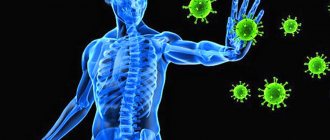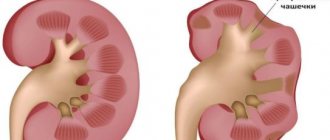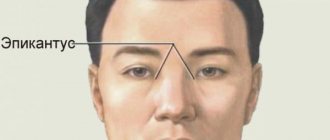December 16, 2020
Pain during erection can be caused by injuries or diseases of an inflammatory and infectious nature. Based on the characteristics of the pain syndrome and accompanying symptoms, one can assume why such an unpleasant symptom arose. If it appears regularly or occurs constantly, you cannot do without the help of a doctor. Let's try to figure out what causes erectile pain in men and what tests need to be taken to find out its nature.
Peyronie's disease
Peyronie's disease may cause severe pain during an erection. They begin at the acute stage and can persist until recovery, when the severe curvature stabilizes. With this disease, the male genital organ is bent due to the fact that the tunica albuginea actively grows inside the corpora cavernosa (the structural unit of the erectile tissue of the penis). The organ is bent towards the developing defect in the form of a plaque - an island of fibrous tissue. In addition to pain during erection, a thickening is observed on the penis. Peyronie's disease can be treated with medications or surgery.
Possible reasons why the penis hurts
Pain in the penis is a pathological sign indicating damage to the skin or internal structures of the organ. It accompanies many pathologies of the genitourinary system, which are divided into several groups:
- inflammatory – caused by infectious or aseptic inflammation of the genitals, urethra;
- congenital - a consequence of the abnormal structure of the organs of the reproductive and urinary systems;
- tumor - caused by benign or malignant neoplasms in the penis;
- traumatic - the result of damage to the soft structures of the penis.
If a man or teenager has pain in the genital organ, you should contact a urologist or andrologist. Most genitourinary diseases lead to sexual impotence and infertility.
Balanitis, balanoposthitis
To find out why your penis hurts, you need to consider the most likely causes of the discomfort. In half of the cases, discomfort in the genitals is caused by inflammatory diseases. If the head of the penis hurts, this indicates balanitis, and if the inflammation involves the foreskin (prepuce), balanoposthitis is diagnosed.
Associated manifestations of diseases include:
- swelling of the head of the penis;
- burning in the preputial sac;
- purulent discharge;
- skin itching;
- limited mobility of the foreskin.
With fungal balanoposthitis, cracks appear on the penis, which hurt and bleed.
Balanoposthitis is an inflammatory disease of the prepuce and head of the penis, which is caused by infection. If the genitals hurt, but a man ignores the symptoms, complications arise in the form of phimosis and erectile dysfunction.
Venereal diseases
Many sexually transmitted diseases (STDs) are accompanied by inflammation of the reproductive system. If the skin is affected, the penis and scrotum hurt. Possible pathologies include:
- urogenital candidiasis;
- bowenoid papulosis;
- genital herpes;
- trichomoniasis;
- gonorrhea;
- ureaplasmosis;
- chlamydia.
If not only the penis, but also the urethra hurts, this indicates the penetration of pathogenic microorganisms into the mucous membrane of the urinary tract. Often sexually transmitted infections are asymptomatic, so men do not rush to see a urologist, dermatovenereologist or andrologist.
Cystitis, urethritis
In half of the cases, pain in the head of the penis occurs due to inflammation of the urinary system. Most often, men are diagnosed with urethritis - inflammation of the urethra. In 90% of cases, the pathology is of infectious origin, that is, caused by bacteria, fungi or viruses. With urethritis, the head of the penis hurts greatly, but in the absence of treatment, discomfort occurs in the entire groin area.
Typical symptoms of urethritis:
- discharge from the urethra;
- swelling of the head of the penis;
- burning when urinating;
- sluggish stream due to swelling of the urethra.
If after 7-10 days the suprapubic area begins to hurt, this indicates inflammation of the bladder - cystitis. Then men have complaints of an urgent and frequent urge to go to the toilet, incomplete emptying of the bladder.
When the urethra or bladder hurts, you need to make an appointment with a urologist. The diseases are dangerous due to the spread of infection to other organs - the prostate, ureters, kidneys, seminal vesicles.
Phimosis and paraphimosis
Very often the head of the penis hurts due to its difficult exposure. This happens when the prepuce (foreskin) is narrowed. The clinical manifestations of phimosis depend on the diameter of the phimosis ring. Most men have complaints about:
- skin irritation;
- swelling of the head of the penis;
- difficulty urinating;
- bleeding when trying to move the prepuce;
- pain during sexual intercourse.
If the foreskin pinches the penis, paraphimosis is diagnosed. A man has severe pain in the head of the genital organ. Due to deterioration of blood supply, it acquires a bluish tint.
Paraphimosis is a complication of phimosis that provokes negative consequences. If the genitals hurt, but the patient does not see a doctor, the soft tissues begin to gradually die and rot.
Injuries
Damage to the skin, tissue, muscles, spongy or cavernous bodies of the genital organ can be different (chemical, thermal, mechanical). The severity of symptoms depends on the nature of the traumatic factor. In 1.5% of cases, not only the penis is injured, but also the scrotum.
To find out why the head of the penis hurts, you need to determine the severity of the damage. Injuries are caused by:
- fractures;
- bruises;
- burns;
- dislocations;
- frostbite;
- infringements;
- gunshot wounds;
- cuts.
If your genitals hurt within 20-30 minutes after emergency care, you should call a doctor. Reasons for contacting a traumatologist:
- blood in urine;
- difficulty urinating;
- traumatic shock;
- urinary incontinence.
If the penis is dislocated, the ligaments that attach to the pelvic bones are torn. With such an injury, it is not the penis itself that hurts, but the injured areas of the muscular-ligamentous apparatus.
Circulatory disorders
If the sexual organ is poorly supplied with blood, this leads to the destruction of erectile tissue, skin, and nerves. When they do not receive the required amount of nutrients and oxygen, the penis begins to ache.
Insufficient blood supply to the genital organs is 3.5 times more common in patients with diabetes.
Possible causes of circulatory disorders in the pelvic organs and genitals include:
- atherosclerosis;
- varicose veins;
- endarteritis;
- varicocele.
If blood microcirculation is disrupted, the tip of the penis loses sensitivity. Over time, tingling sensations occur in the affected areas, which develop into painful sensations.
Inflammation of the corpora cavernosa
When the head of the genital organ hurts, in 10% of cases this indicates cavernosis - inflammation of the cavernous (cavernous) bodies. This is a relatively rare male disease that is triggered by infection. Occurs due to various factors:
- penis injuries;
- urinary catheterization;
- STD;
- intracavernous administration of drugs;
- gonorrheal urethritis.
The symptoms of cavernitis are pronounced. Patients experience pain in the penis, increased temperature and fever. A persistent erection makes it difficult to divert urine, which leads to urinary retention.
Priapism
The disease is characterized by a constant erection, which causes pain in the penis. Priapism is not associated with sexual arousal; it is caused by the following reasons:
- traumatic brain injuries;
- brain tumors;
- schizophrenia;
- vasculitis;
- multiple sclerosis;
- perineal injuries;
- prostate or bladder cancer;
- taking antidepressants or anti-impotence medications.
In 35-50% of cases, it is not possible to find out the cause of pathological erection.
But if it occurs involuntarily without sexual arousal and continues for hours, you should consult a urologist. Symptoms of priapism:
- persistent painful erection;
- arched curvature of the penis towards the abdomen;
- pain in the perineum.
Due to prolonged erection, men experience pain in the penis and groin area. Stagnation of blood leads to swelling of the head.
Prostatitis
Aching pain at the base of the penis, blood or pus in the urine, sexual dysfunction and difficulty urinating are the main manifestations of prostatitis. Prostate inflammation in 90% of cases is infectious. Occurs against the background of urethritis, cystitis, pyelitis and other urogenital infections.
Provocateurs of prostatitis include:
- hypothermia;
- immunodeficiencies;
- casual sex;
- regular constipation;
- chronic diseases.
When a man has pain in the groin area and genitals, and white flakes are detected in the urine, he should make an appointment with a urologist. Incorrect or absent treatment is dangerous for urinary retention.
Foreign bodies in the penis
In 0.5% of cases, pain in the head of the penis occurs when the urethral canal is blocked by foreign bodies that are introduced into it for the purpose of:
- medical examination;
- sexual satisfaction.
According to statistics, this phenomenon is found in 80% of cases in young or elderly men with dementia - acquired dementia. Depending on the location and size of the foreign bodies, the penis hurts only when excited or constantly.
Tumor
With tumor diseases, discomfort occurs both outside and inside the genital organ. The growth of malignant tumors is accompanied by damage to the structures of the penis, which is why they hurt. Sometimes blood clots are released from the urethra.
Possible cancers include:
- Penile cancer – low-quality neoplasms in the area of the head and foreskin of the penis;
- Keir's erythroplasia is a cancer of the mucous membrane of the head of the penis, sometimes affecting the inner layer of the prepuce.
Due to tumors inside the penis or urethra, the groin area hurts, urination becomes difficult, and hematuria occurs—blood in the urine.
Urolithiasis disease
Urolithiasis, or urolithiasis, is stones in different parts of the urinary system. If the penis hurts greatly during urination, this indicates damage to the urethra by the sharp edges of the stones. Additional signs of urolithiasis include:
- renal colic;
- sluggish stream;
- hematuria;
- lower back pain;
- frequent urge to go to the toilet.
Men with urolithiasis may experience attacks of nausea, intestinal spasms, and fever.
Hypothermia
Often, pain in the penis is caused by hypothermia, which leads to a decrease in blood circulation in the erectile tissue and a decrease in local immunity. As a result, favorable conditions arise for the reproduction of pathogenic microorganisms in the genitals.
Hypothermia of the penis is fraught with:
- prostatitis;
- relapses of genital herpes;
- urethritis;
- balanoposthitis;
- swollen scrotum syndrome.
Hypothermia often leads to cooperitis - inflammation of the exocrine glands that are located in the urethra. That's why men get a lot of pain from the head of their penis.
Possible complications of pain in the penis
Pain in the glans penis is an abnormal condition that indicates problems with the genitourinary system. Ignoring a symptom or improper treatment has negative consequences:
- sexual impotence;
- gangrene of the penis;
- anemia;
- urethral strictures;
- pyelonephritis;
- hydronephrosis;
- cachexia;
- penile cancer;
- hydrocele;
- Peyronie's disease;
- septic shock.
If the base or head of the genital organ hurts, you need to make an appointment with a urologist/andrologist. According to statistics, all male diseases, to one degree or another, lead to sexual impotence or the impossibility of sexual activity.










